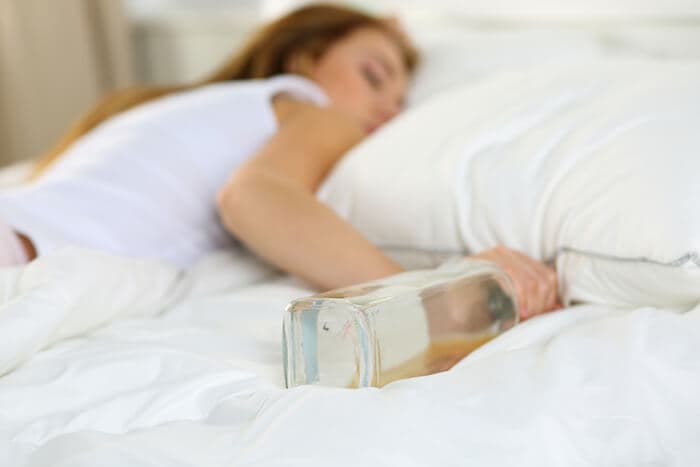7 Proven Ways to Prevent Hangovers
Hangovers are the unpleasant aftermath of alcohol intoxication.
They strike hardest after alcohol has left your body and are characterized by headache, fatigue, thirst, dizziness, nausea and a loss of appetite (1Trusted Source).
Hangover remedies abound, but the evidence behind them is limited or hypothetical (2Trusted Source).
Even so, a few strategies do show potential.
Here are 7 evidence-based ways to prevent hangovers, or at least make them significantly less severe.

1. Avoid Drinks High in Congeners
Ethanol is the main active ingredient in alcoholic drinks, but they also contain varying amounts of congeners.
When sugar-fermenting yeasts produce ethanol — simply referred to as alcohol in this article — congeners are formed as well (3Trusted Source).
Congeners are toxic chemicals that include methanol, isopentanol and acetone (4Trusted Source, 5Trusted Source).
Alcoholic drinks with high levels of congeners seem to increase the frequency and intensity of hangovers.
Two studies suggest that methanol, a common congener, is strongly associated with hangover symptoms (6Trusted Source, 7Trusted Source).
Drinks high in congeners include whiskey, cognac and tequila. Bourbon whiskey is exceptionally high in congeners.
On the other hand, colorless drinks — like vodka, gin and rum — have low levels of congeners. In fact, vodka contains almost no congeners at all (3Trusted Source).
In studies that compared the effects of vodka (low in congeners) and whiskey (high in congeners), both the frequency and intensity of hangovers were greater for whiskey (8Trusted Source, 9Trusted Source, 10Trusted Source).
SUMMARY You can significantly reduce the severity of hangovers by drinking low-congener beverages, such as vodka, gin or rum.

2. Have a Drink the Morning After
Treating a hangover by having another drink seems paradoxical.
All the same, it is a famous hangover remedy, often referred to by the phrase “hair of the dog (that bit you)” (11Trusted Source).
Although this habit has not been proven effective, there is some interesting science behind it.
Simply put, drinking more alcohol is believed to affect the metabolism of methanol, a well-known congener found in trace amounts in some drinks.
After drinking, your body converts methanol into formaldehyde, a highly toxic substance. Formaldehyde may be partly responsible for many hangover symptoms (11Trusted Source, 12Trusted Source, 13Trusted Source).
However, consuming alcohol the morning after drinking heavily can inhibit this conversion process, preventing formaldehyde from forming (14Trusted Source, 15Trusted Source).
Instead, methanol is discharged harmlessly from your body via your breath and urine. That’s why ethanol is often used to treat methanol poisoning (16Trusted Source).
That said, having another drink in the morning is strongly discouraged as a hangover remedy — as it may simply delay the inevitable.
Morning drinking is often associated with alcohol dependency, and mitigating a few hangovers is not worth risking your health.
SUMMARY Drinking more alcohol the next morning is a famous hangover remedy. However, this risky method may do more harm than good.
3. Drink Plenty of Water
Alcohol is a diuretic, making you pee often (17Trusted Source, 18Trusted Source, 19Trusted Source).
Therefore, alcohol can contribute to dehydration.
Although dehydration is not considered a main cause of hangovers, it may contribute to symptoms like thirst, headache, fatigue and dry mouth.
Fortunately, dehydration is easy to avoid — just make sure to drink enough water.
A good rule is to drink a glass of water — or another non-alcoholic beverage — between drinks and to have at least one big glass of water before going to sleep.
SUMMARY Drinking plenty of water can help reduce some of the main symptoms of hangovers, including thirst and headache.
ADVERTISING
4. Get Enough Sleep
Alcohol can interfere with your sleep.
It can impair both sleep quality and duration while disrupting your entire sleep schedule if you stay up too late (1Trusted Source, 20Trusted Source).
Although poor sleep doesn’t cause most hangover symptoms, it may contribute to the fatigue and irritability often associated with hangovers.
Getting plenty of sleep after heavy drinking can help your body recover.
If you are unable to sleep in and take it easy the next day, getting drunk may not be such a good idea.
SUMMARY Alcohol can impair your sleep quality. Give yourself plenty of time to sleep in after a night of celebration.
5. Eat a Hearty Breakfast
Hangovers are sometimes associated with low levels of blood sugar, a condition known as hypoglycemia (21Trusted Source).
They also tend to be more severe in people with low blood sugar (22Trusted Source, 23Trusted Source).
Although hypoglycemia is not a major cause of hangovers, it may contribute to symptoms, such as weakness and headache (24Trusted Source).
After drinking, having a nutritious breakfast or a late-night meal might help maintain your blood sugar levels.
SUMMARY Eating a good breakfast is a renowned hangover remedy. It can help restore blood sugar levels, which mitigates some hangover symptoms.

6. Consider Supplements
Inflammation helps your body repair tissue damage and fight infections.
Evidence suggests that many hangover symptoms are caused by low-grade inflammation (25Trusted Source, 26Trusted Source).
In fact, some anti-inflammatory drugs have been shown to be quite effective against hangovers (27Trusted Source).
Many plant-based foods and medicinal herbs may also reduce inflammation and help prevent hangovers.
Supplements that impact hangovers include red ginseng, ginger and prickly pear (28Trusted Source, 29Trusted Source, 30Trusted Source).
Prickly pear is worth highlighting. This is the fruit of the cactus Opuntia ficus-indica, which is believed to be native to Mexico.
In one study in 55 young, healthy individuals, taking prickly pear extract five hours before drinking reduced the risk of a severe hangover by 62% (31Trusted Source).
Although they won’t completely prevent a hangover, particular plant-based supplements might significantly ease your symptoms.
SUMMARY Certain dietary supplements — including prickly pear, red ginseng and ginger — may reduce hangover symptoms.
7. Drink in Moderation or Not at All
The severity of hangovers increases with the amount of alcohol you consume (32Trusted Source).
For this reason, the best way to prevent hangovers is to drink in moderation — or abstain completely.
The amount of alcohol needed to produce a hangover varies among individuals.
Some people need only 1–2 drinks, but most need much more. About 23% of people do not appear to get hangovers — no matter how much they drink (33Trusted Source).
SUMMARY The severity of hangovers is directly related to alcohol intake. Limiting or abstaining from drinks are the best ways to prevent a hangover.
The Bottom Line
Alcoholic hangovers refer to adverse symptoms — dizziness, headache, fatigue, nausea — that appear when people sober up after excessive drinking.
Several strategies may help reduce the severity of hangovers. These include getting adequate sleep, having a hearty breakfast, drinking plenty of water and avoiding drinks high in congeners.
But the best way to avoid hangovers is to drink in moderation or abstain completely.FEEDBACK:

Written by Atli Arnarson BSc, PhD on September 26, 2018



